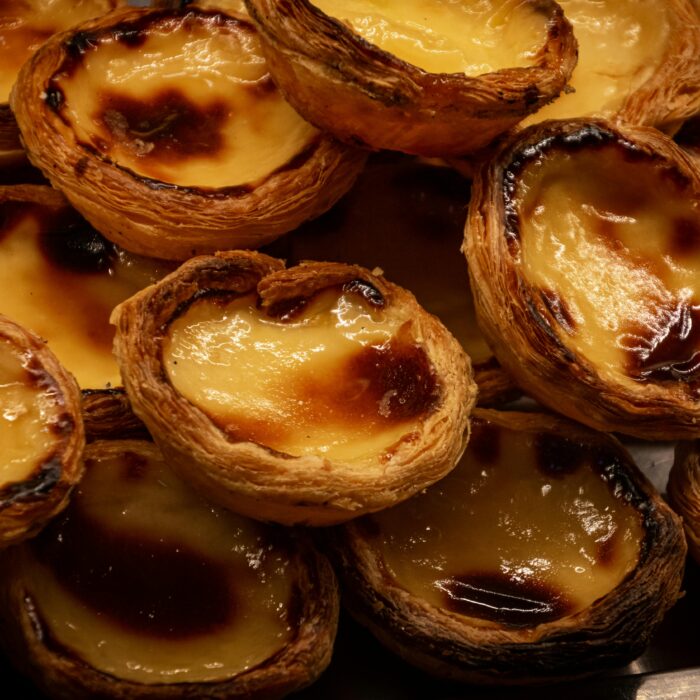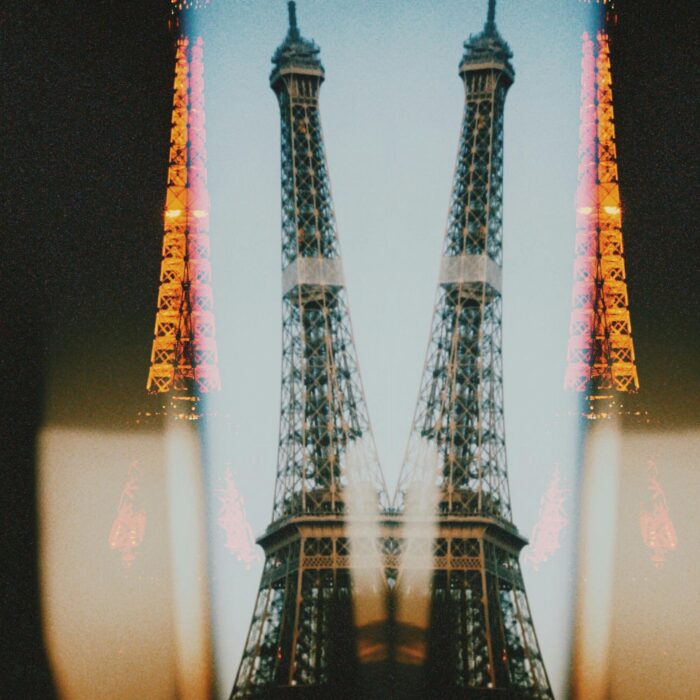You have no items in your cart. Want to get some nice things?
Go shopping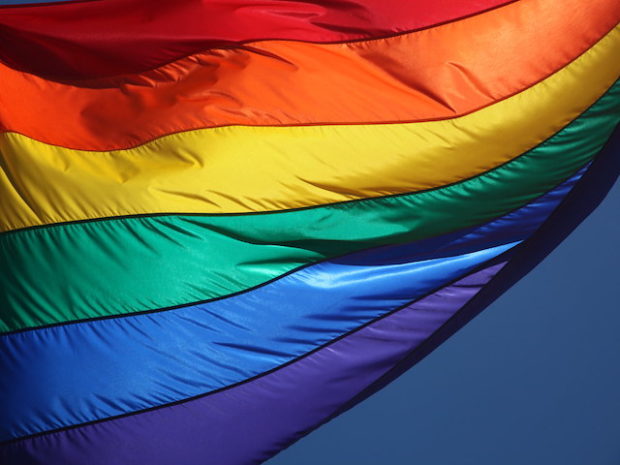
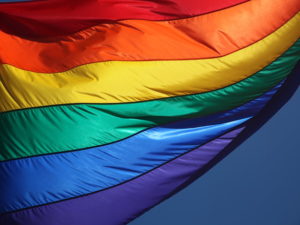
It is Pride weekend in Santa Fe and at the family celebration youth drag queens are invited to perform.
“I’ve got no roots,” I point my fingers in the air, “but my home was never on the ground.” Candace and I stomp our feet to the rhythm of Alice Merton’s song. We smile, throwing our heads back at the performing drag queen on stage.
Bella Gigante: “It sounds Italian,” the drag queen had said when she introduced herself as a response to my “I’m Pietje, sounds like peach-a.” Her dark eyes glistened boldly behind impossibly long lashes.
On the dance floor, a twelve-year-old boy floss-dances relentlessly, egged on by his family. Beyond him, in the dark of the brew pub, I glance at the woman I plan to marry – if that right will not be taken away – sitting at a high top with Candace’s wife Laura and daughter.
I’ve decided not to drink tonight, but even if I had been drinking, I would’ve still felt as if my body were a strangers’ dancing and trying a little too hard to appear as if this were just another Saturday night.
I’ve felt rootless for most of my life. Naturally, I come from somewhere. Birdaard is the small Frisian town in Northern Holland where I spent the first ten years of my life. I was named after my maternal grandmother. She stood out with her black curls and brown eyes in a town where most are blond haired and blue-eyed. When winters were still harsh, she skated the canals alongside empty frosted fields to visit her adopted parents two towns over. She married an intersex person, my grandpa, something that was not revealed to us until after both their deaths. There are questions that cannot be answered anymore.
As young as four years old I realized we were considered odd in the village. Teenagers on bikes yelled slurs at us. My brothers got beaten up walking home from school. I remember being anxious. Boys dressed in black leather jackets hanging out on the drawbridge dividing the village in half terrified me. When I saw them smoking their roll-ups, I turned around.
“You will never feel at home here,” my mom would console me as soon as she saw my blue face. “We are different.”
Especially after her parents had passed, she felt more isolated than ever. She was taking solace in the separateness that the Bible offered as taught by The Brethren, the church community we belonged to one town over. I wasn’t so sure if I wanted to be different. I’d rather have been like the other girls in school. The towns people called our church a cult, but the Brethren had warnings about cults, so I knew we weren’t one.
It wasn’t popular to be an Evangelical Christian in High School in the nineties. Young leaders at youth conferences made emotional calls to radicalize and “give your heart to Jesus.”
On one such night when gospel bands were playing their increasingly sweeping worship songs, I was convinced that Jesus had touched me and shortly after I was baptized.
My baptism was highly emotional. My mom decided to get baptized on the same night. She cried through songs such as “What a Friend We Have in Jesus” and “Safe in The Arms of Jesus.” My grandmother stumped me with a question “How do you know you are saved?” I remember looking helplessly at my mom.
I felt lonely at school and looked for comfort in my friendships within the Christian youth groups. I was learning to live for Jesus and putting my own wishes aside. Thinking hardships were my medals, I counted on rewards waiting for me in the afterlife. We are in this world, but not of this world.
My school friends were getting old enough to go to discos. I spent hours listening to my cassette player wishing I could join them, but dancing was where boys would get ideas.
“Ask yourself if Jesus is present,” my mom would say “if not – the devil is there. Ready for you. He is tricky.”
I put ‘I love Jesus’ buttons on my backpack and went to the church coffee bar instead.
Since then, I have lived in different places, world cities even – London, Seattle. I loved a man who I married at only eighteen years old. I committed sins, one which I thought I could not possibly survive – divorce. But I did.
“The earth is not our home,” my mom used to say.
Perhaps it is not that farfetched that I felt without roots for so long, drifting and searching for community, but wary all the same. As a nineteen-year-old mother with two babies I felt alien between the thirty-year-olds who had matching furniture and husbands who returned home at five pm in their Saabs.
Bella looms large on stage in her colorful updo surrounded by Happy Pride balloons. A punky woman flicks her drumsticks in the air, winking at her admirers. Candace runs one hand through her thick dark locks and I mimic her gesture. I’m not sure which song is being played now. I must get back to the table. Am I holding my breath?
I’m grateful for our food order to arrive so I can concentrate on eating. The teenage drag queens are asked to perform. One after the other comes up and does a little routine. Adolescents in short glittery dresses with exaggerated make-up exude confidence, making my heart ache in a way I can’t place. People crowd around and cheer them on. I fill myself up with chips and salsa. Candace has returned to the dancefloor with her daughter while my fiancée chats with Laura. I just nod and eat. The performers appear foreign to me in all their exuberance and poise.
“I’ve got no roots, but my home was never on the ground,” my heart beats in my throat as I swallow the dry chips.
“We are only passing through,” my mom had a distant look when she’d spoke the familiar phrase.
People are clapping around me. I remember the day I told my mom I did not believe anymore.
“God knows you still believe in your heart,” she had answered me. Now I realize that she needed to believe that. It was the only way for her to get through life.
When Laura stands up to use the restroom I find my fiancée’s eyes.
Alarmed, she looks at me, “What is it?”
“We need to go now!” I blurt.
In the car I finally let out some deep breaths. “I’m scared, I don’t know why.”
She touches me, pulling me in. “You’re safe,” she says, “no one can hurt you.”
Santa Fe’s dryness affects everything. It affects our hair, our skin, our indoor air quality. After a couple of months we finally realized we had to buy humidifiers. The purple and pinks of the evening skies are colors I’ve seen nowhere else. As I hike through the red dirt of arroyos and canyons, I notice I am considering Santa Fe to be my home now. A land where plants must be tough and ready to be deprived to take root. When water comes, and it does, when the monsoons hit and the skies burst open, the plants open and soak it all in. Santa Fe blooms.
“Ask me where I come from, I’ll say a different land,” Alice Merton’s voice echoes on in my head as I lay awake in the hot night.
The question of where I’m from when people detect my accent is never an easy one to answer. I’m Frisian, I’m Dutch. I Learned British English and lived in the United Kingdom. No one has ever heard of the village I was born in.
When people ask what part I’m from in the Netherlands I answer, “two hours North of Amsterdam.” But I’m from Seattle, I’m from a cult.
People say, “But the Dutch are so tolerant…?”
How to tell them of the villages where women dress in black and blues, stockings and all. Televisions and stereos banned. Where the only allowed activities on Sundays beside churchgoing are reading and taking a stroll. How to relate the backhanded jokes about the gay couple living next door and the messages of Moroccans raping their women?
“I think you are so brave,” my friend Siebe says. He is four years older than me and grew up in the Brethren cult as well. Like me he traveled far away from home, all the way to California. When we do break away, we flee.
“What do you mean?” I ask.
“You, being out with a woman. Being outspoken. You must feel so free,” he answers.
As he says this, I realize I have not yet freed myself. The strings from my past are still holding me hostage, desperately trying to drag me back. Siebe tells me how he felt there was always something chasing him and I know exactly what he means.
If Jesus isn’t there, the Devil is.
The song beats with the rhythm of my heart: “I build a home and wait for someone to tear it down. Then pack it up in boxes, head for the next town running.”
I did wait for someone to tear it all down. In the end, that someone was always me. I ran from churches, judgement, people, family, love. I ran from fear. I ran from the past. I ran from the devil. But there he was. Sitting in bars, slowly stirring a cocktail. There he was, in the middle of the gay parade, so flashy and present, laughing in my face, pointing at me: You don’t belong here. There he was, at lesbian karaoke in Seattle, sitting between my friends in my newly found community: You can’t be here. No amount of alcohol could diminish him. There he was, in my new house, next to my lesbian girlfriend, her eyes gone dark as she handed me a sip of whiskey. Did she come to lure me away from God? Was I on the wrong path? What if the Christians had it right all along? Here he was, inside of me: You are wicked.
My mom’s voice: “God knows you still believe.”
The prayer I know by heart: “Have mercy upon my soul.”
“It’s just the place that changes, the rest is still the same,” sings Alice.
Santa Fe has quieted my mind. I’ve found relief from the hustle and bustle in Seattle. Yet, there I am. The desert is a perfect backdrop not only for Western movies but also for apocalyptic film settings. The artsy scene of Santa Fe attracts a selection of retirees, artists and spiritual seekers. People are liberal and open minded which suits me. Most days I can sink into a comfortable state of bliss and soak up the high desert sunshine. Other days I avoid TV shows and the going out scene. I have not rid myself of all those messages from my past. The messages that said that some people and places are immoral. The messages that said I don’t belong, not anywhere. The messages that said I’m not of this world. The messages that said that the devil is waiting for me, just around the corner, hiding in any form or person. The messages that said I must be vigilant, ready for Jesus’ return. Intellectually, I don’t believe the messages anymore. Physically I still react. My breathing halts, my voice quivers, my heart beats faster, my fear boiling over in anger.
“I’ve got no roots, but my home was never on the ground,” I sing along with Alice Merton, listening to Alexa.
Next year I’d like to celebrate Pride with pride. Pride without shame. Pride without guilt. Pride without judgements, judgement of myself and judgements of others. Pride of how far we’ve come and dreams of how far we still have to go, individually and as a people. I’ve got roots. My roots are in the small village of Birdaard, in the province of Frisia, in the Netherlands. My parents belonged to a cult. They loved me and yet instilled harmful messages in me that haunt me still. My home is the earth, and right now it is Santa Fe. I did some things wrong, I did many things right. Living only one life, I want to live it free.
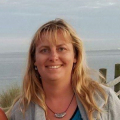
Pietje Kobus
Pietje Kobus is an MFA student of the Mississippi University for Women in Columbus. She writes creative non-fiction and poetry, mostly about the long-lasting damage of harmful messages received during childhood. When she is not writing you can find her in Santa Fe, NM playing with her dogs or taking pictures along a trail.
- Web |
- More Posts(1)


